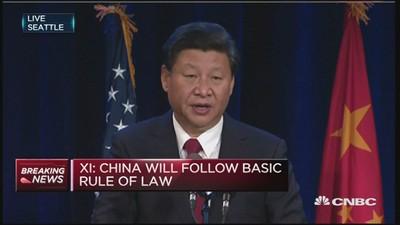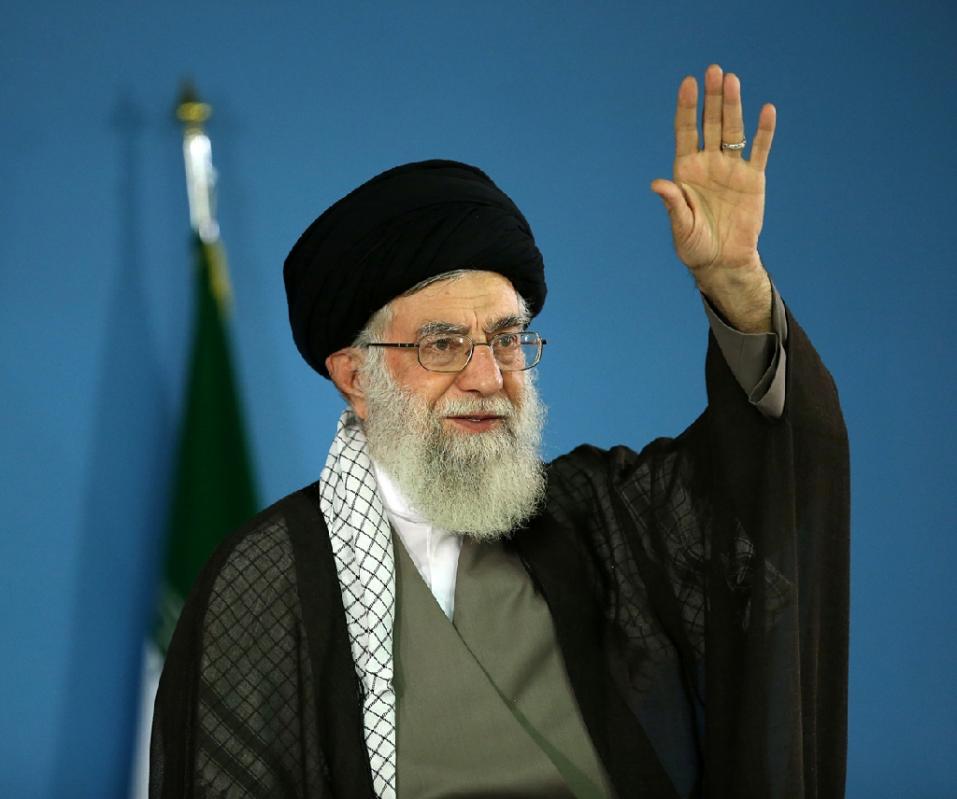Iran’s leader says never trusted the West, seeks closer ties with China
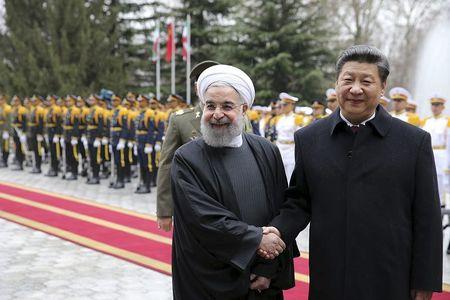
DUBAI (Reuters) — Iran's Supreme Leader Ayatollah Ali Khamenei on Saturday called for closer economic and security ties with China, saying Iran had never trusted the West, as the two countries agreed to increase bilateral trade more than 10-fold to $600 billion in the next decade.
Iran's most powerful figure told Chinese President Xi Jinping during a visit Iran wanted to expand ties with "more independent countries", adding the United States was "not honest" in the fight against terrorism in the region.
"Iranians never trusted the West… That's why Tehran seeks cooperation with more independent countries (like China)," Khamenei said.
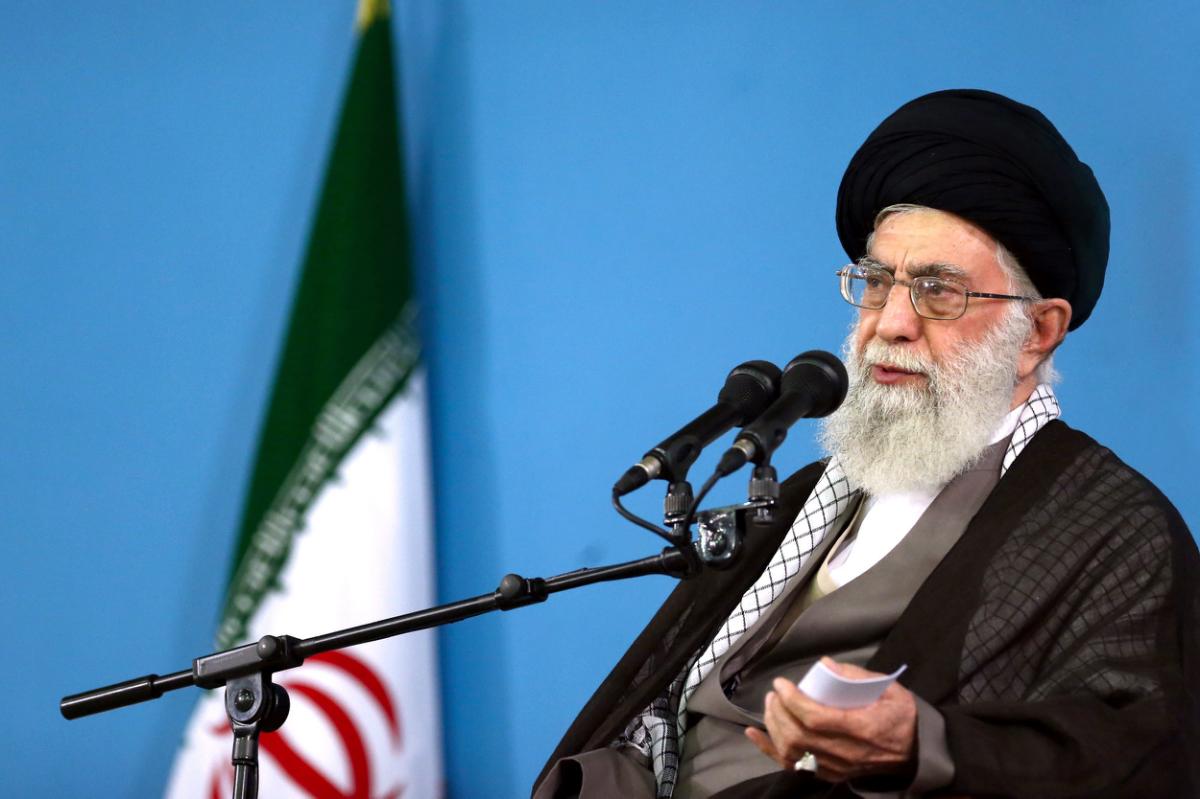
In this picture released by the official website of the office of the Iranian supreme leader, Supreme Leader Ayatollah Ali Khamenei delivers a speech during a meeting in Tehran, Wednesday, Sept. 9, 2015. Khamenei said Wednesday that his country will not enter into talks with the United States outside of the nuclear deal with world powers as Washington could use other negotiations to «penetrate» the Islamic Republic. Khamenei’s comments, published on his website, came as enough U.S. lawmakers now support the nuclear deal to block passage of a resolution of disapproval. (Office of the Iranian Supreme Leader via AP)
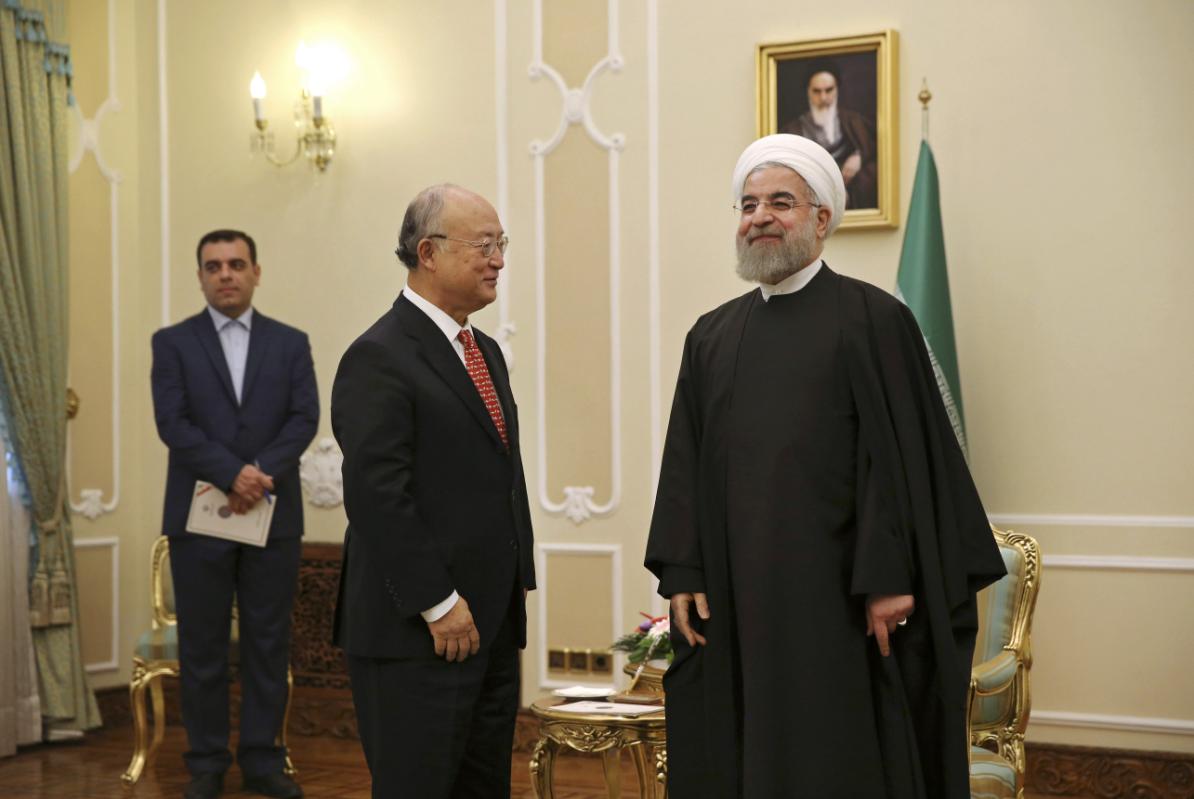
Iranian President Hassan Rouhani, right, welcomes U.N. nuclear chief Yukiya Amano for their meeting in Tehran, Iran, Sunday, Sept. 20, 2015. Rouhani told Amano on Sunday that his agency should be fair in its implementation of a nuclear deal reached between Iran and the world powers, according to a report on Rouhani’s website. (AP Photo/Vahid Salemi)
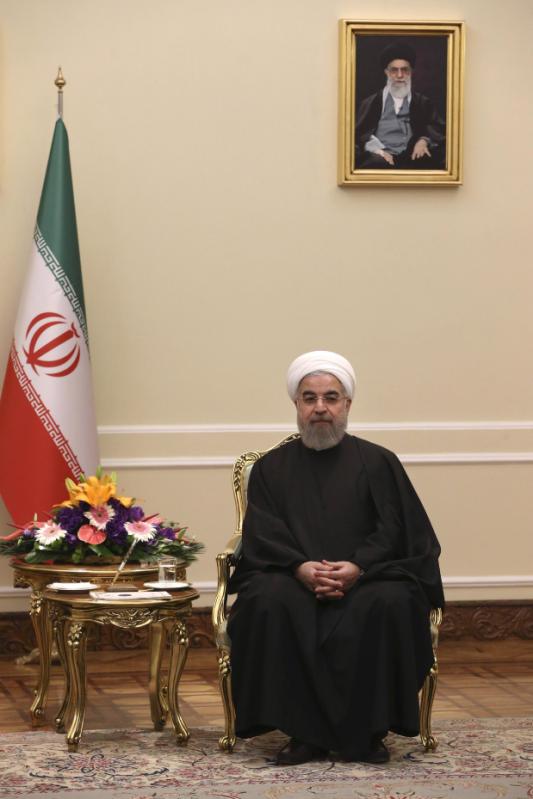
Iranian President Hassan Rouhani sits during a meeting with U.N. nuclear chief Yukiya Amano, in Tehran, Iran, Sunday, Sept. 20, 2015. Iran’s state TV reported Amano arrived in Tehran Sunday to «clarify past and current issues» of the country’s nuclear program. Iran and the world powers have agreed to a landmark deal that curbs Iran’s nuclear program in return for the lifting of international economic sanctions. A portrait of the Iranian Supreme Leader Ayatollah Ali Khamenei hangs on the wall. (AP Photo/Vahid Salemi)
"Iran is the most reliable country in the region for energy since its energy policies will never be affected by foreigners," Khamenei was quoted by his official website as saying at a meeting with Xi.
Xi is the second leader of a U.N. Security Council member to visit Tehran since the nuclear deal Iran struck with world powers last year. Russian President Vladimir Putin visited Tehran in November.
Iran emerged from years of economic isolation this month when the United Nations' nuclear watchdog ruled it had curbed its nuclear program, clearing the way for the lifting of U.N., U.S., and European Union sanctions.
"Iran and China have agreed to increase trade to $600 billion in the next 10 years," President Hassan Rouhani said at a news conference with Xi broadcast live on state television.
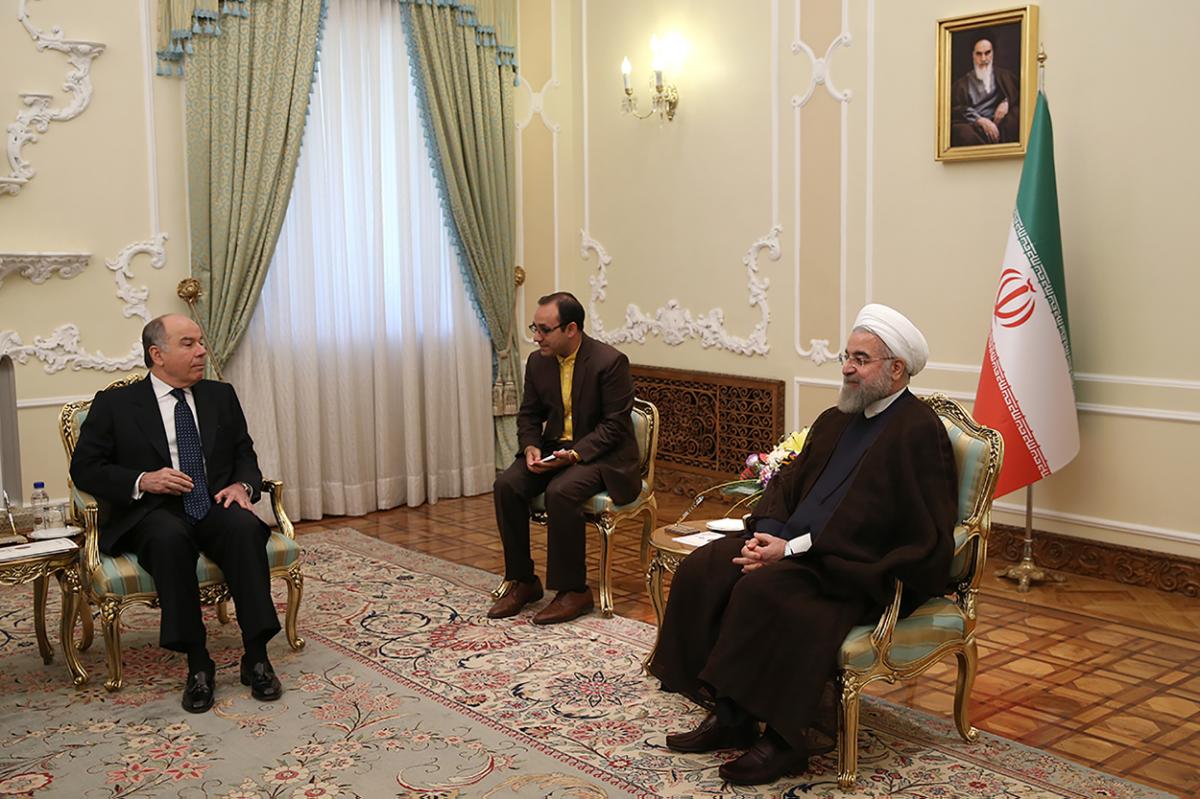
In this photo released by official website of the office of the Iranian Presidency on Sunday, Sept. 13, 2015, Brazilian Foreign Minister Mauro Luiz Iecker Vieira, left, speaks with Iran’s President Hassan Rouhani, right, through an interpreter during their meeting, in Tehran, Iran. (Iranian Presidency Office via AP)
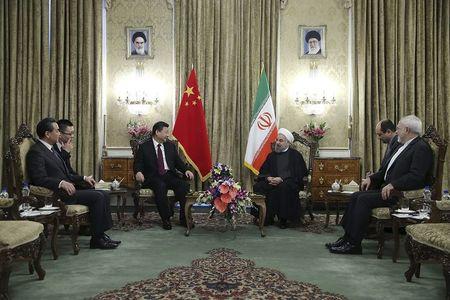
Iranian President Hassan Rouhani meets Chinese President Xi Jinping in Tehran, Iran January 23, 2016. REUTERS/President.ir/Handout via Reuters
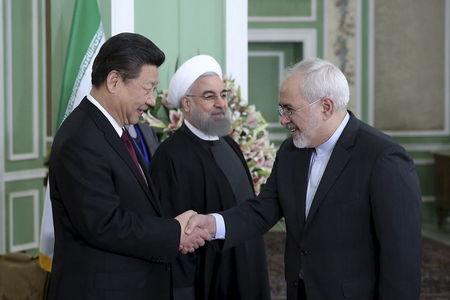
Iranian Foreign Minister Mohammad Javad Zarif (R) shakes hands with Chinese President Xi Jinping in Tehran, Iran January 23, 2016. REUTERS/President.ir/Handout via Reuters
"Iran and China have agreed on forming strategic relations (as) reflected in a 25-year comprehensive document," he said.
Iran and China signed 17 accords on Saturday, including on cooperation in nuclear energy and a revival of the ancient Silk Road trade route, known in China as One Belt, One Road.
"China is still heavily dependent on Iran for its energy imports and Russia needs Iran in terms of its new security architecture vision for the Middle East," said Ellie Geranmayeh, policy fellow at the European Council on Foreign Relations.
"Iran plays quite an integral role for both China and Russia’s interests within the region, much more than it does for the Europeans," Geranmayeh said.
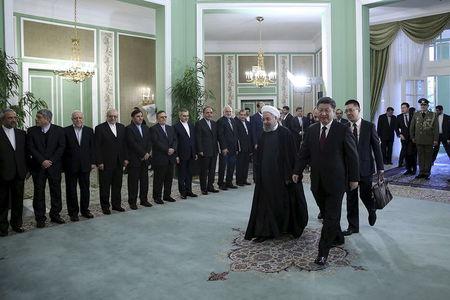
Iranian President Hassan Rouhani (C) walks with Chinese President Xi Jinping (R) during a welcoming ceremony in Tehran, Iran January 23, 2016.REUTERS/President.ir/Handout via Reuters
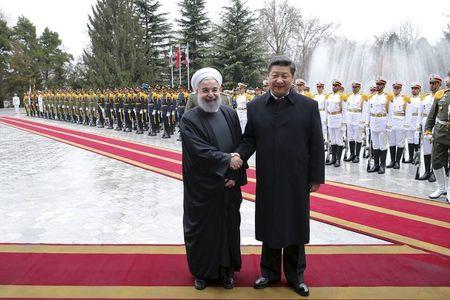
Iranian President Hassan Rouhani (L) shakes hands with Chinese President Xi Jinping during a welcoming ceremony in Tehran, Iran January 23, 2016.REUTERS/President.ir/Handout via Reuters
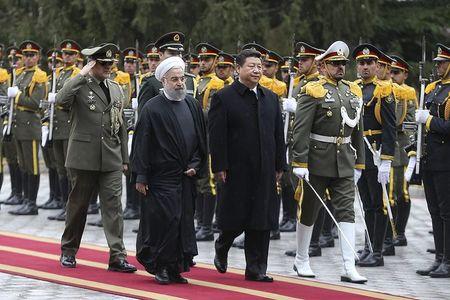
Iranian President Hassan Rouhani and Chinese President Xi Jinping review the honour guard during a welcoming ceremony in Tehran, Iran January 23, 2016.REUTERS/President.ir/Handout via Reuters
NEW MARKETS
Khamenei said Iran would never forget Chinese cooperations during the sanctions.
"The China-Iran friendship … has stood the test of the vicissitudes of the international landscape," Xi was quoted as saying by China's Xinhua news agency.
The Chinese state-backed Global Times newspaper said in an editorial on Saturday that China hoped to improve ties with Iran as part of its sweeping plan to rebuild trade links with Europe and Asia and carve out new markets for its goods.
"China is of course considering its self interest in strengthening cooperation with Iran, especially at a time when China is in the midst of expending efforts to push forward the One Belt, One Road initiative, Iran is an important fulcrum," the paper said.
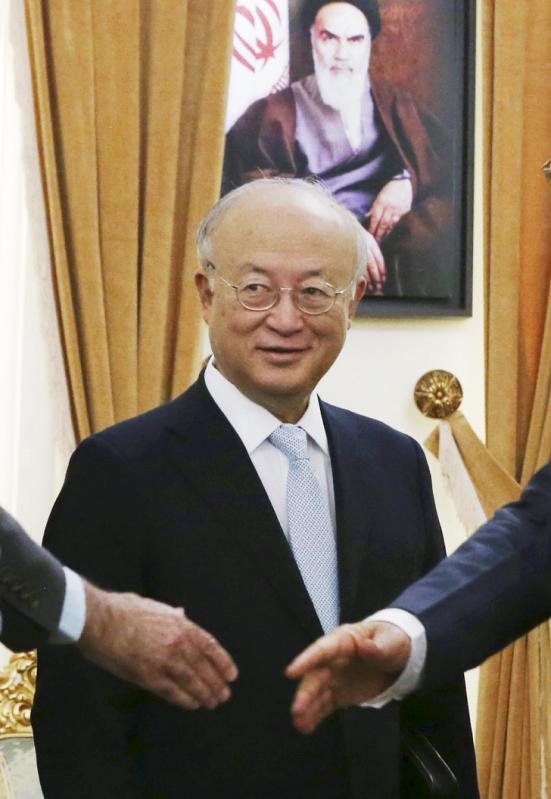
FILE — In this July 2, 2015 file photo, U.N. nuclear chief Yukiya Amano stands as Secretary of Iran’s Supreme National Security Council Ali Shamkhani shakes hands with delegation members before the start of their meeting in Tehran, Iran. Iran’s state TV is reporting Amano has arrived in Tehran, to «clarify past and current issues» of the country’s nuclear program. Iran and the world powers have agreed to a landmark deal that curbs Iran’s nuclear program in return for the lifting of international economic sanctions. (AP Photo/Vahid Salemi, File)
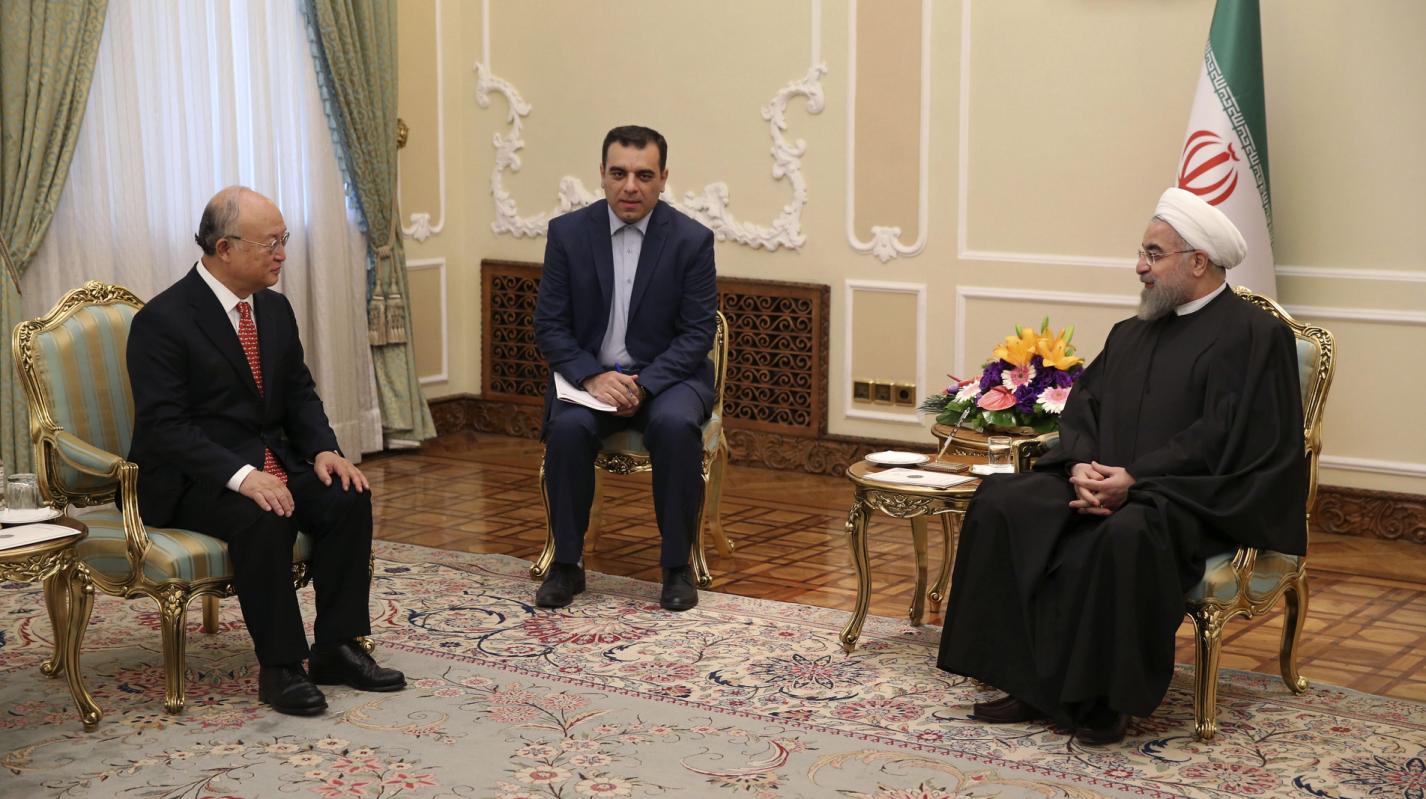
Iranian President Hassan Rouhani, right, talks with U.N. nuclear chief Yukiya Amano, left, during their meeting in Tehran, Iran, Sunday, Sept. 20, 2015. Iran’s state TV reported Amano arrived in Tehran Sunday to «clarify past and current issues» of the country’s nuclear program. Iran and the world powers have agreed to a landmark deal that curbs Iran’s nuclear program in return for the lifting of international economic sanctions. An unidentified interpreter sits, center. (AP Photo/Vahid Salemi)
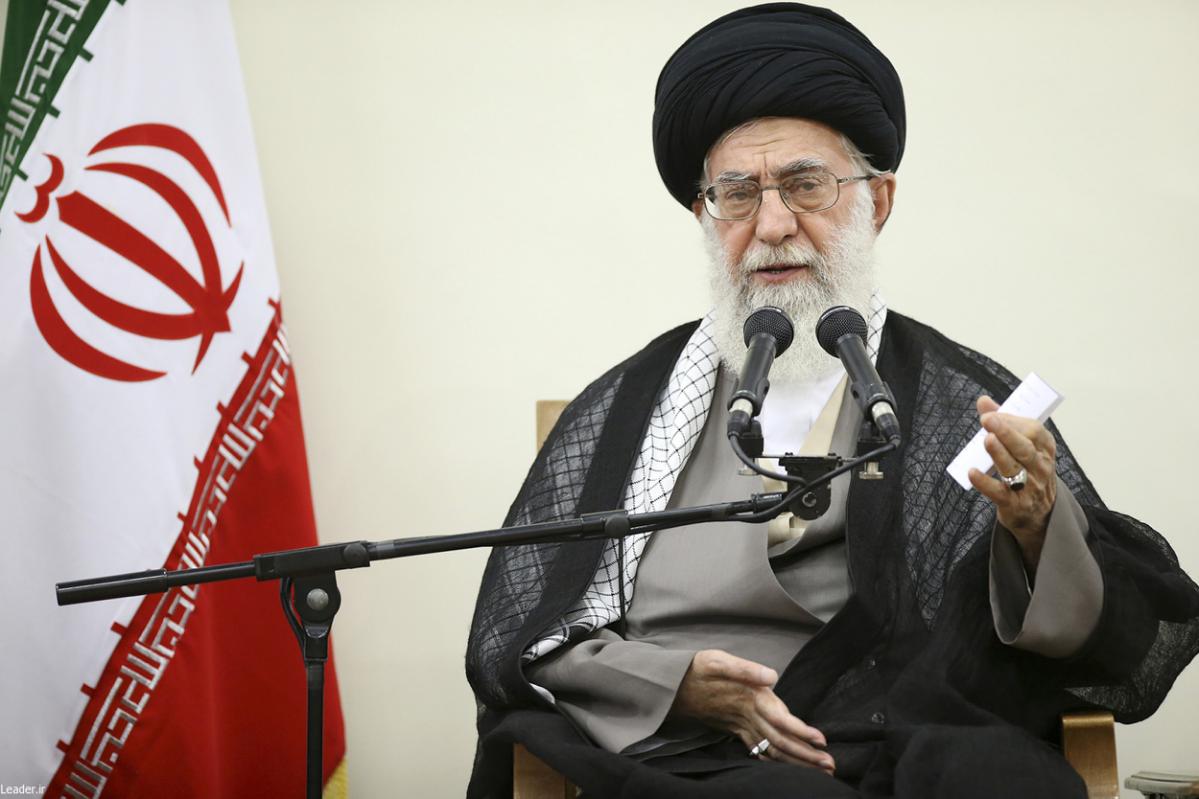
In this picture released by official website of the office of the Iranian supreme leader on Thursday, Sept. 3, 2015, Supreme Leader Ayatollah Ali Khamenei speaks in a meeting with members of Iran’s Experts Assembly in Tehran, Iran. Iran’s supreme leader says world powers must lift international sanctions and not merely suspend them as part of a landmark nuclear agreement. Ayatollah Ali Khamenei said «there will be no deal» if the sanctions are not lifted. (Office of the Iranian Supreme Leader via AP)
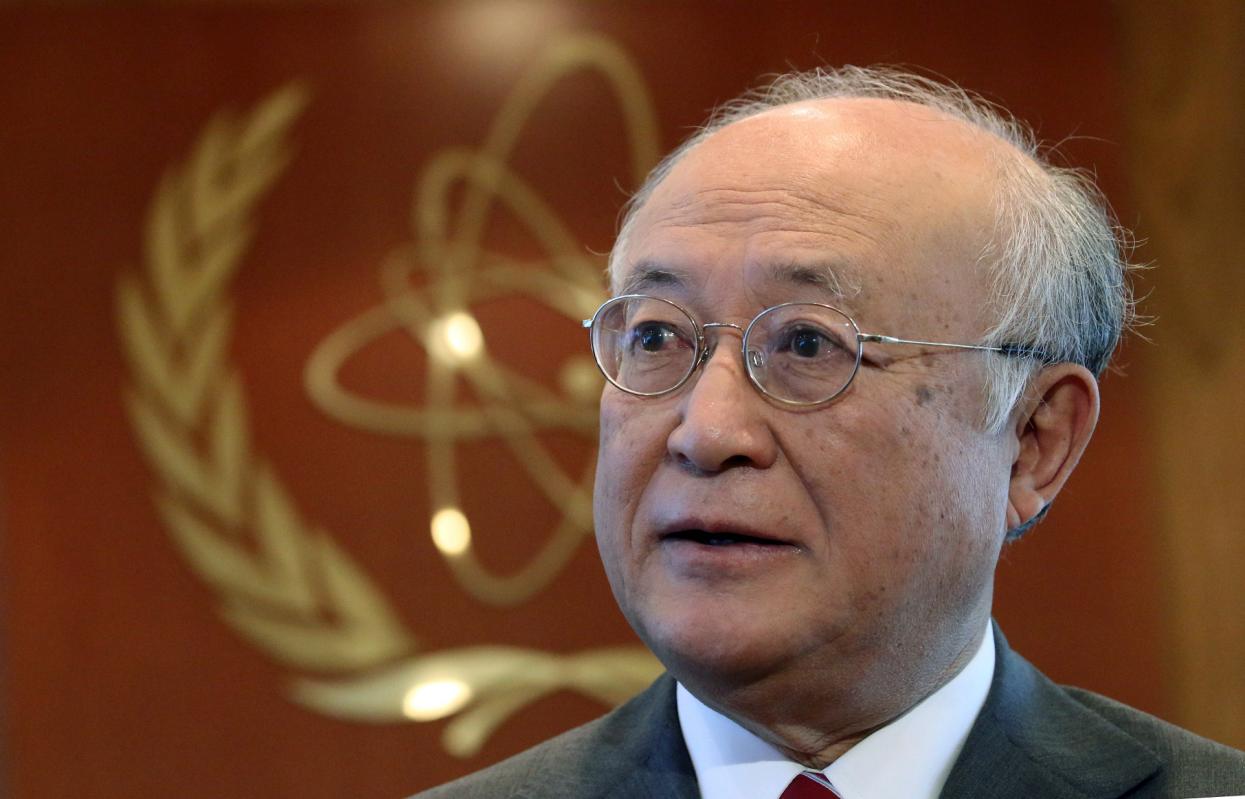
FILE — In this May 12, 2015 file photo, U.N. nuclear chief Yukiya Amano from Japan speaks during an interview with The Associated Press in Vienna, Austria. Iran’s state TV is reporting Amano has arrived in Tehran Saturday, Sept. 20, 2015, to «clarify past and current issues» of the country’s nuclear program. Iran and the world powers have agreed to a landmark deal that curbs Iran’s nuclear program in return for the lifting of international economic sanctions. (AP Photo/Ronald Zak, File)
While China seeks closer ties with Iran, earlier this week it signaled its support for Yemen's government, which is fighting an Iran-allied militia, during Xi's visit to Saudi Arabia, Iran's rival for influence in the region.
Iran has called on China to join the fight against the Islamic State militant group and play a more active role in the region.
Tehran is widely credited with convincing Russia to start its military intervention in Syria and join the fight against Islamic State.
"Although China and Russia backed U.N. sanctions against Iran on its nuclear program, they were also heavily pushing for special waivers to continue trading with Iran," Geranmayeh said.
"Iran had a relationship both politically and economically with China and Russia for the last ten years in ways that it hasn't had with Europe. So it’s quite natural to see it opening up first to these countries."
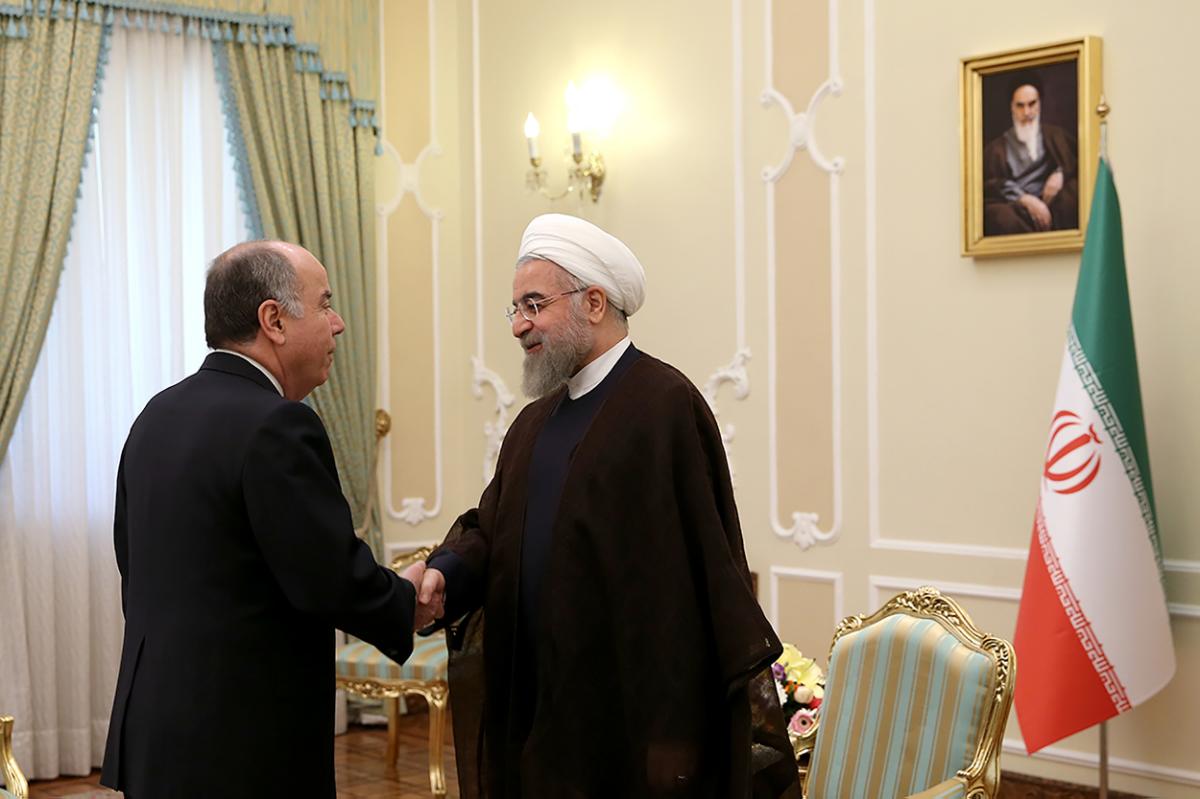
In this photo released by the official website of the office of the Iranian Presidency on Sunday, Sept. 13, 2015, Iran’s President Hassan Rouhani, right, greets Brazilian Foreign Minister Mauro Luiz Iecker Vieira at the start of their meeting in Tehran, Iran. (Iranian Presidency Office via AP)
Политика конфиденциальности | Правила пользования сайтом
